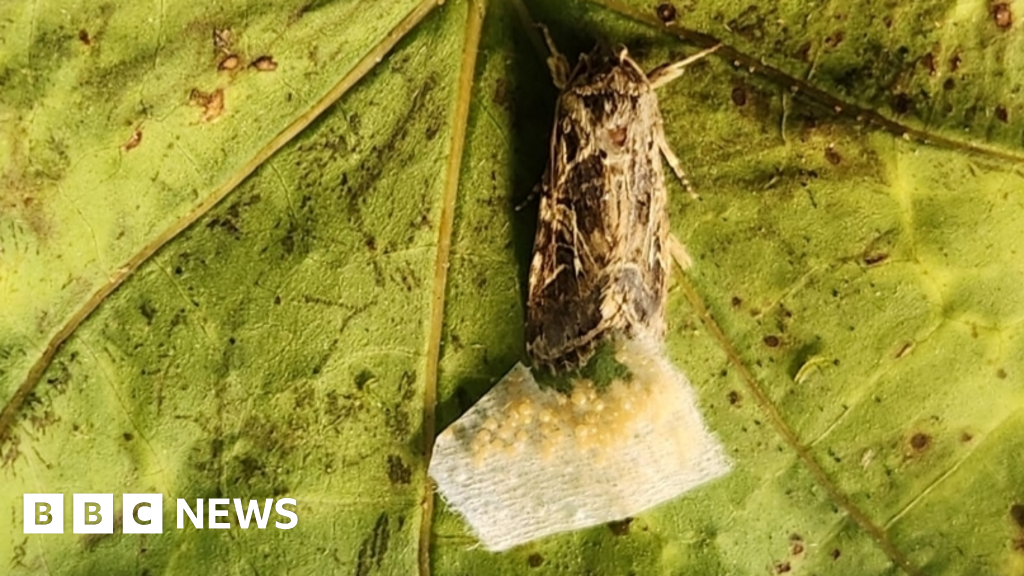Science
Animals Respond to Plant Sounds, Revealing Hidden Ecosystem

Research from **Tel Aviv University** has unveiled that animals, specifically female moths, respond to sounds made by plants, indicating a previously unknown level of interaction between these organisms. The study highlights how these moths avoid laying their eggs on tomato plants that emit distress signals, potentially linked to the plants’ health.
This groundbreaking research, published in the journal **eLife** in March 2024, builds on previous findings by the same team, which demonstrated that plants produce sounds when they are under stress. These sounds, although inaudible to humans, can be detected by various species, including insects, bats, and some mammals.
Prof Yossi Yovel, a key researcher in this study, stated, “This is the first demonstration ever of an animal responding to sounds produced by a plant.” He emphasized that while this is still speculative, it suggests that animals might make crucial decisions based on the auditory signals from plants, such as choosing whether to pollinate or seek shelter.
Experiment Details and Findings
In a series of meticulously controlled experiments, the researchers ensured that the moths’ responses were strictly due to the sounds and not the visual characteristics of the plants. The findings revealed that when tomato plants emitted sounds indicative of distress, the moths refrained from laying their eggs, which they typically do on healthy plants.
The team is now poised to explore the sounds produced by various plant species and whether other animals also react to these auditory cues, potentially informing their behaviors regarding feeding, pollination, or habitat selection.
Prof Yovel further noted, “You can think that there could be many complicated interactions, and this is the first step.” This line of inquiry opens the door to understanding the complex relationships within ecosystems.
Implications for Plant Communication
Another intriguing aspect of the study involves the potential for plants to communicate with each other through sound. According to **Prof Lilach Hadany**, also from Tel Aviv University, this raises exciting questions about how plants might respond to stress signals from their counterparts, particularly in adverse conditions like drought.
“If a plant is stressed, the organism most concerned about it is other plants,” she explained in a statement. “They can respond in many ways.” While the researchers clarify that plants are not sentient beings, the sounds they produce are a result of physical changes in their environment.
The implications of this research suggest that if plants and animals can indeed communicate through sound, it could signify a co-evolutionary process where plants adapt to produce beneficial sounds while animals evolve to interpret these signals effectively. Prof Hadany remarked, “This is a vast, unexplored field—an entire world waiting to be discovered.”
This study marks a significant advancement in our understanding of ecological interactions. As scientists continue to investigate these phenomena, the intricate web of life that connects animals and plants may become clearer, revealing how they depend on one another in ways previously unrecognized.
-

 World2 days ago
World2 days agoCoronation Street’s Shocking Murder Twist Reveals Family Secrets
-

 Entertainment4 months ago
Entertainment4 months agoKate Garraway Sells £2 Million Home Amid Financial Struggles
-

 Entertainment3 months ago
Entertainment3 months agoAnn Ming Reflects on ITV’s ‘I Fought the Law’ Drama
-

 Health3 months ago
Health3 months agoKatie Price Faces New Health Concerns After Cancer Symptoms Resurface
-

 Entertainment3 weeks ago
Entertainment3 weeks agoCoronation Street Fans React as Todd Faces Heartbreaking Choice
-

 World3 weeks ago
World3 weeks agoBailey Announces Heartbreaking Split from Rebecca After Reunion
-

 Entertainment5 days ago
Entertainment5 days agoTwo Stars Evicted from I’m A Celebrity Just Days Before Finale
-

 World5 days ago
World5 days agoKevin Sinfield Exceeds Fundraising Goal Ahead of Final Marathons
-

 Entertainment3 months ago
Entertainment3 months agoCoronation Street’s Carl Webster Faces Trouble with New Affairs
-

 Entertainment3 months ago
Entertainment3 months agoWhere is Tinder Swindler Simon Leviev? Latest Updates Revealed
-

 Entertainment4 months ago
Entertainment4 months agoMarkiplier Addresses AI Controversy During Livestream Response
-

 Science2 months ago
Science2 months agoBrian Cox Addresses Claims of Alien Probe in 3I/ATLAS Discovery











